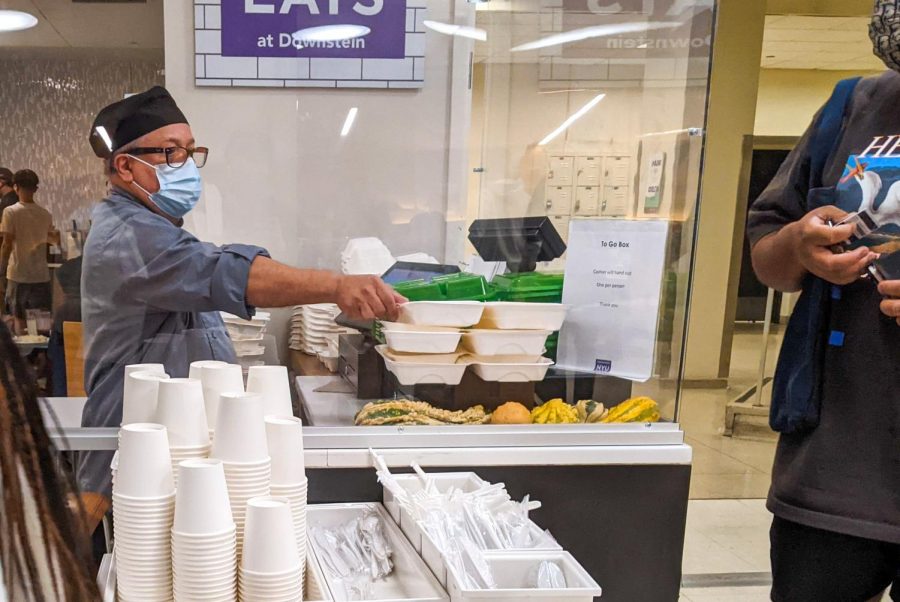Students use NYU’s free meal programs, but not enough donate
The student-led Swipe it Forward program struggles to collect enough donations to support students experiencing food insecurity.
Swipe it Forward is a program where students can donate their extra meal swipes to other students. But recently, the program has struggled to collect enough student meal swipes to support the increasing number of students who are using the program. (Photo by Naomi Mirny)
December 9, 2021
Since its launch in 2019, Swipe it Forward — a program where students can donate their extra meal swipes to be used by others — has provided access to free meals to those facing food insecurity on campus. But after the student government expanded the initiative to include five additional dining halls for the fall 2021 semester, the program has struggled to collect enough student donations to sustain the growing number of students using it.
“Not enough students are donating, and it puts the program in a deficit of thousands of students,” Shamon Lawrence, the senator at-large for students experiencing food and basic needs insecurity, said. “The increase in demand is clear that more students are experiencing food insecurity. With that, coupled with a more robust campaign, advertising and being in person, I certainly think that the numbers don’t truly match what we can achieve.”
As of fall 2021, Swipe it Forward operates in nine dining halls: Jasper Kane Cafe, Downstein, Kosher Eatery, Lipton, Third North, Palladium, Peet’s Coffee and the Marketplace at Kimmel. The student government plans to expand the program to Upstein for spring 2022.
“We know that it’s really making a difference in people’s lives, which is the whole point,” Student Government Chair Mehrin Ali said. “And it’s really a win-win that meal swipes aren’t going to waste and people aren’t going hungry.”
Kathrina O’Mahony, the senior director of NYU Dining, noted how three students were unable to receive free meal swipes in early October because meal vouchers were unavailable. To increase donations, dining services director Carolyn Milea is working with Ali, O’Mahony and NYU IT to include Swipe it Forward in NYU’s dining portal.
“Obviously, we don’t want any student to go hungry, so NYU Dining adjusted the policy as a part of this pilot program to provide meals to any student in need, regardless of the number of donations/vouchers currently available,” O’Mahony said.
Lawrence said that in order to facilitate direct access to food resources for students on campus, NYU should continue promoting other programs like Courtesy Meals — which allows students to apply for $75 in emergency Dining Dollars — since student donations to Swipe it Forward have been inconsistent.
“Beyond the posters and marketing materials through email, there hasn’t really been any push or drive behind the program,” Lawrence said. “It’s important for students to destigmatize access to food because food is a basic need. In order for us to thrive as an academic community, we must commit to making sure that students have access to nutritious meals.”
Rachel Cohen contributed reporting.
Contact Maria Freyre at [email protected].

























































































































































